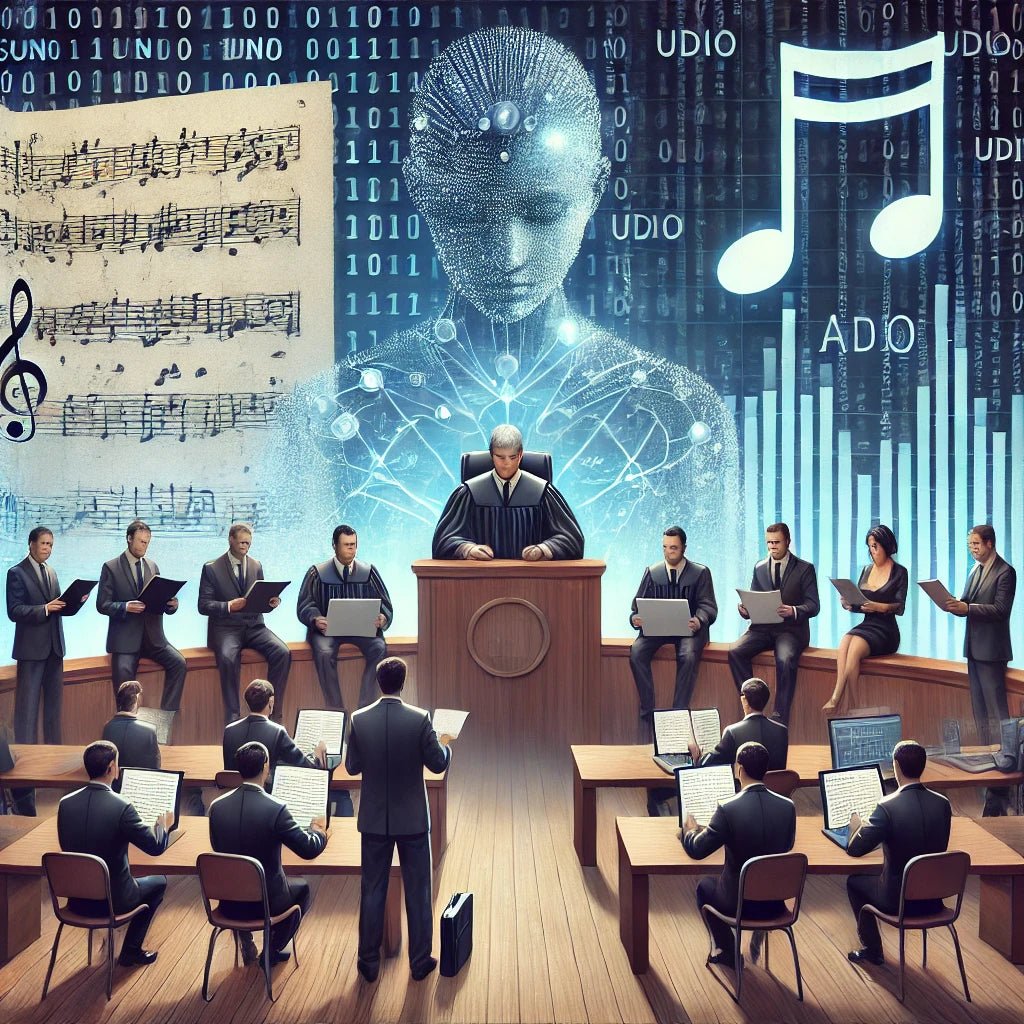
Major Labels Sue AI Firms: Suno & UDIO Face Copyright Infringement Claims
Gary WhittakerMajor Labels Sue AI Firms Suno and UDIO: The Battle Over Copyright Infringement
Introduction
The rise of AI-generated music has brought both excitement and controversy to the music industry. Recently, major labels have filed a lawsuit against AI firms Suno and UDIO, alleging copyright infringement. This lawsuit is significant as it could shape the future of AI in music creation and the protection of intellectual property.
Background
AI-generated music uses advanced algorithms to create music compositions, often mimicking the style of human artists. Suno and UDIO are at the forefront of this technology. Suno AI, referred to as the "ChatGPT for music" in a Rolling Stone article, has made waves with its ability to generate diverse and complex musical pieces. This innovation, while groundbreaking, has also raised legal and ethical concerns.
The Lawsuit
According to the Billboard article, major labels, including Universal Music, have sued Suno and UDIO, accusing them of using copyrighted songs to train their AI models without proper authorization. The lawsuit claims that this practice violates copyright laws and undermines the value of human-created content. The implications of this lawsuit are far-reaching, potentially affecting how AI companies operate and how music is created and consumed.
Relevant Information from Additional Sources
Rolling Stone Article on Suno AI
The Rolling Stone article highlights Suno AI's advanced capabilities in generating music and its potential to revolutionize the music industry. The article discusses how Suno AI can produce music that closely resembles the work of human artists, raising questions about the originality and ownership of AI-generated content. Industry experts have expressed both excitement and concern about the technology's potential and its ethical implications.
Billboard Article on Universal Music's Lawsuit
The Billboard article details Universal Music's concerns that AI companies are using copyrighted songs to train their models without obtaining the necessary permissions. This practice, Universal Music argues, infringes on the rights of artists and creators, setting a dangerous precedent for the use of copyrighted material in AI training. The outcome of this lawsuit could establish important legal guidelines for AI-generated content and its relationship with copyright law.
The Stakes
This lawsuit is pivotal for the future of AI in music. If the courts rule against Suno and UDIO, it could impose stricter regulations on how AI companies use copyrighted material, potentially stifling innovation. Conversely, a ruling in favor of the AI firms could encourage more widespread use of AI in creative industries, raising further ethical and legal challenges.
Perspectives
Major Labels' Perspective
Major labels argue that the unauthorized use of copyrighted material to train AI models devalues the work of human artists and violates intellectual property rights. They believe that stricter regulations are necessary to protect the creative industry's integrity and ensure fair compensation for artists.
AI Firms' Perspective
AI companies like Suno and UDIO contend that their technology represents a natural evolution of music creation. They argue that their models generate original content, even if trained on existing works, and that innovation should not be stifled by outdated legal frameworks. They also highlight the potential for AI to democratize music creation and provide new opportunities for artists.
The Role of Ethics and Innovation
The ethical considerations surrounding AI in creative industries are complex. On one hand, there is a need to protect artists' rights and ensure fair compensation. On the other hand, fostering technological innovation is crucial for the industry's growth. Balancing these interests requires careful consideration of both legal and ethical perspectives.
Conclusion
The lawsuit against Suno and UDIO is a landmark case that could redefine the relationship between AI and copyright law. The outcome will have significant implications for the future of AI-generated music and the protection of intellectual property. It is essential to find a middle ground that encourages innovation while safeguarding the rights of creators.
Stay informed about this and other industry developments by following my blog. Share your thoughts on the future of AI in music and engage in the discussion on social media.
References
- Billboard Article on the Lawsuit
- Rolling Stone Article on Suno AI
- Billboard Article on Universal Music's Lawsuit
